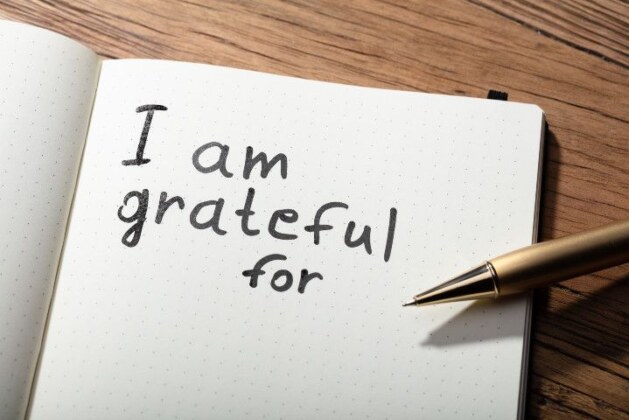We all know the drill: life gets overwhelming, stress piles up, and before you know it, you’re caught in a whirlwind of negative thoughts. If you’ve found yourself stuck in a cycle of anxiety, self-doubt, or emotional turmoil, you might be surprised to learn that one of the simplest tools for turning things around is something as easy as picking up a pen. Enter gratitude journaling—a deceptively simple practice with powerful benefits for mental clarity and emotional healing.
But hold up, before you roll your eyes thinking, “I don’t have time for writing in a journal!” hear me out. The beauty of gratitude journaling is its simplicity and versatility. It’s a no-pressure, no-judgment way to boost your mental health, shift your mindset, and, yes, even start feeling a little lighter. So, let’s dive into how this practice works, why it’s effective, and how you can start reaping the benefits, even if you’re not an expert writer or fancy journal keeper.
Table of Contents
What Is Gratitude Journaling?
In its simplest form, gratitude journaling is the practice of regularly writing down things you’re thankful for. It sounds basic, right? But don’t let its simplicity fool you—it’s a game changer for your emotional and mental well-being. The idea is to focus on the positive aspects of your life, no matter how small or big they may seem. The goal isn’t just to list random things you appreciate but to actively train your mind to recognize the good, especially when life feels tough.
Think of it as your own little self-therapy session—no therapist fees required (though we do love a good therapist). When you journal with intention, it gives you the space to reflect, reframe your thoughts, and shift your mindset.
The Science Behind Gratitude Journaling
You may be wondering, “But does this really work?” The short answer: Yes, absolutely. There’s actual science behind it. Studies have shown that practicing gratitude, especially through journaling, can activate the brain’s reward system, which is responsible for making us feel good. It releases neurotransmitters like dopamine and serotonin, which are the “feel-good” chemicals in our brain. So, in essence, you’re training your brain to seek out more positive experiences while reducing the brain’s tendency to focus on negativity.
But the benefits don’t stop there. Gratitude journaling can:
- Reduce Stress and Anxiety: Focusing on gratitude can act as a distraction from anxious thoughts. By writing down what you’re thankful for, you break the cycle of worry.
- Boost Emotional Resilience: When life throws curveballs (and it will), being grateful helps you find strength in adversity. It encourages you to look for silver linings, even in tough times.
- Improve Sleep Quality: Studies suggest that writing in a gratitude journal before bed can help you sleep better by calming the mind and reducing racing thoughts.
- Enhance Relationships: Not only does gratitude journaling help you focus on the positives in your life, but it also boosts your ability to appreciate the people around you. The more you focus on the good in others, the more you strengthen those relationships.
How Gratitude Journaling Aids Emotional Healing
When you’re dealing with emotional pain—whether it’s from grief, heartbreak, or just feeling burned out—gratitude journaling can be a soft landing pad for your emotions. Let’s face it: it’s hard to focus on the good when you’re stuck in a cycle of negativity. But here’s the thing: shifting your focus can make a world of difference.
Writing down the things you’re grateful for helps you reclaim a sense of control over your emotional state. When you focus on gratitude, you’re actively choosing to respond to your emotions in a healthy way. It’s like giving your brain a little mental massage, helping you release emotional tension.
This practice encourages emotional healing because it fosters acceptance of where you are right now, while also offering hope and possibility for the future. Over time, it can help reduce feelings of resentment, regret, or sadness—transforming them into a feeling of emotional balance and peace.
Practical Tips for Starting Your Gratitude Journal
Now, you might be thinking, “Okay, I’m convinced, but where do I start?” Don’t worry—I’ve got you covered. Gratitude journaling is easy to start, and here are some tips to help you build a lasting habit:
- Set a Realistic Goal
Start small. You don’t need to write pages every day. Begin with just 3 things you’re grateful for each day. They can be as simple as “I’m grateful for my morning coffee” or “I’m thankful for a warm bed.” It doesn’t have to be profound, but over time, you’ll start to see how much good is around you. - Be Specific
Instead of writing “I’m thankful for my family,” try to get specific. Write down why you’re thankful for them today. For example, “I’m grateful for my mom’s phone call today, it really lifted my spirits.” Specificity helps deepen your gratitude and makes it more meaningful. - Incorporate Positive Emotions
Don’t just list things you’re grateful for; focus on how they make you feel. For example, “I’m grateful for my friend’s support because it made me feel loved and understood.” This practice helps connect you emotionally to the gratitude you’re expressing. - Do It Daily (or Almost!)
Consistency is key. Try to write in your journal every day, even if it’s just a quick note before bed. If daily journaling feels like too much, aim for three times a week—just make sure it becomes a habit. - Keep It Positive
On tough days, it may feel like you have nothing to be grateful for. But that’s exactly when gratitude journaling becomes most powerful. Even on your hardest days, try to find something—no matter how small—that brings you joy. You might be surprised at how much good there is in your life, even in tough times.
Real-Life Benefits: Testimonials from Gratitude Journalers
Let’s take a quick detour and hear from some real people who’ve experienced the transformative power of gratitude journaling.
- Sarah, 32: “I started journaling when I was dealing with a lot of stress at work. At first, I didn’t think it would help much. But after a few weeks of writing down even the tiniest things I was grateful for, I noticed I was less anxious and more hopeful. It’s like my brain had a reset.”
- Michael, 45: “I’ve struggled with depression for years, and my therapist suggested gratitude journaling as part of my recovery. It seemed silly at first, but after consistently writing down what I’m thankful for, I feel more present and calm. It’s been one of the simplest, yet most effective practices for my mental health.”
The Bottom Line: Why Gratitude Journaling Works
Gratitude journaling is more than just a trend—it’s a simple, powerful tool that can help you manage stress, heal emotionally, and create a more positive, balanced mindset. Whether you’re navigating life’s challenges or just looking for a way to boost your mood, this practice can be a game-changer.
So, if you’re feeling overwhelmed, lost in negative thoughts, or simply craving some mental clarity, pick up that pen. Start small, stay consistent, and give yourself the gift of gratitude. It might just be the best decision you make for your mental health today.
Read More: The Neuroscience of Anxiety Attacks: How Your Brain Triggers Fear and How to Overcome It





Your passion for your subject matter shines through in every post. It’s clear that you genuinely care about sharing knowledge and making a positive impact on your readers. Kudos to you!